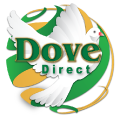Can Paper Invoicing Improve Security?
The jury remains out as to whether or not paper invoicing will ultimately fall by the wayside. The general concern is whether or not electronic billing and the data breaches that continue to occur will push paper documents back to the forefront. The recent headlines regarding data breaches with financial institutions and critical infrastructure attacks against private and public sectors, including food and oil, have people feeling jittery. It should come as no surprise that the general publics' lack of trust in electronic billing may help to reaffirm trust and confidence in hardcopy transactional documents, especially invoices.
Our Quote of the Day: "We discovered in our research that insider threats are not viewed as seriously as external threats, like a cyberattack. But when companies had an insider threat, in general, they were much more costly than external incidents. This was largely because the insider that is smart has the skills to hide the crime, for months, for years, sometimes forever." — Dr. Larry Ponemon
Electronic invoicing may be convenient for most businesses, but not so for individuals. In one example, a Toluna commissioned survey conducted by Two Sides noted that 78% of US respondents keep hard copies of valuable documents at home. The kicker is that these US respondents believe that paper documents are the safest and most secure method to store information. Additionally, 76% of these same respondents voice concerns that personal data held electronically presents multiple high risks, including hacking, losing, or damaging their information.
Millions of households, small businesses, and patients experience data breaches every year. Organizations looking to secure their transactional relationships with their customers may want to rethink the electronic invoicing model, particularly as it relates to trust.
Trust In Paper
Social Media is awash in hoax-based content, disinformation campaigns, and false news reporting. These types of fraudulent content begin on the internet and make their way to various social media channels. One trend underfoot points to a growing number of electronic invoice recipients taking screenshots of information and printing it for personal storage.
The same survey also found that 74% of respondents believe that fake news is a worrying trend. Therefore, it should come as no surprise that 56% stated that they trust news articles that they read in newspapers, while only 35% trust news that they read on social media channels.
Moreover, a whopping 64% were very concerned if printed newspapers went away. In short, print collateral continues to have great value, particularly when it comes to trustworthiness.
The survey results make the case that print collateral in various forms and purposes, from newspapers to invoices to health and financial records, is viewed as a more secure method for delivering information over and above its digital counterpart. Although, not all demographic ranges are in total agreement with print versus electronic invoicing.
Demographic Variances
The following questions, albeit a small portion of the survey, point to a difference between the 18-24 year-olds and the overall responses.
Statement 1: I keep hard copies of important documents filed at home, as I believe this is the safest and most secure way of storing my information:
- Overall Response: Agree + Strongly Agree = 79%
- 18-24 year-old Response: Agree + Strongly Agree = 68%
- Difference between Overall vs. 18-24-year-old age group = 11%
Statement 2: I am increasingly concerned that my personal information held electronically is at risk of being hacked, stolen, lost, or damaged:
- Overall Response: Agree + Strongly Agree = 76%
- 18-24 year-old Response: Agree + Strongly Agree = 65%
- Difference between Overall and 18-24-year-old age group = 11%
Statement 3: I would be very concerned if printed newspapers were to disappear:
- Overall Response: Agree + Strongly Agree = 64%
- 18-24 year-old Response: Agree + Strongly Agree = 61%
- Difference between Overall and 18-24-year-old age group = 3%
Statement 4: I trust the news stories I read in printed newspapers:
- Overall Response: Agree + Strongly Agree = 56%
- 18-24 year-old Response: Agree + Strongly Agree = 57%
- Difference between Overall and 18-24-year-old age group = 1%
Statement 5: I trust the news stories I read on social media:
- Overall Response: Agree + Strongly Agree = 35%
- 18-24 year-old Response: Agree + Strongly Agree = 37%
- Difference between Overall and 18-24-year-old age group = 2%
Statement 6. Fake News is a worrying trend:
- Overall Response: Agree + Strongly Agree = 73%
- 18-24 year-old Response: Agree + Strongly Agree = 78%
- Difference between Overall and 18-24-year-old age group = 5%
The degree of variance in the survey's results between the overall response rate and that of the 18 to 24-year-old demographic is not that far apart. However, marketers should note that the 18-24 year-olds response to fake news as worrisome exceeds the overall group by a total of 5%. Perhaps, one might think that the overall respondents would be more concerned regarding a fake news trend than 18-24 year-olds. Alas, such is not the case!
Brands are consistently grappling with marketing strategies that foster trustworthiness in combination with personalization aspects. To that end, it would appear that brands and marketers would be wiser to offer paper documents for certain products and electronic statements where trust may play a diminishing role.
The Net-Net
Data breaches continue to be a top-of-mind concern for the private and public sectors. There are many more business concerns with electronic invoicing, sending, and delivering, including how the invoicing and accounting teams discern hacked invoices from official billing statements. Intelligent brands will need to lead by investing more in security infrastructure and possibly employing paper billing options to avoid operational disruptions. Thanks for reading "Can Paper Invoicing Improve Security?"
Let's have a conversation about integrated business solutions and how they can help grow your business, change behavior, and improve the customer experience.
Let us show you how to improve your document processes to optimize your workflow, reduce costs, and maximize your organization's printing, letter shop, and mailing capabilities.
Dove Direct has an official USPS certified bureau located within our offices to save you time and money. We can even create a demo file for you. For more information, call Carla Eubanks at 404-629-0122 or email Carla at This email address is being protected from spambots. You need JavaScript enabled to view it..
Dove Direct, your Atlanta based print and mail solutions provider, offers organizations end-to-end data, printing, and mailing solutions:
- Data Management
- Variable Digital/Data Printing
- LetterShop and Fulfillment
- Digital Mail Scanning Services
- Fully Automated MLOCR Presort Bureau
- Marketing and Production Management Support
- Secure Data Life Cycle Management
If you don't want to wait, you can reach Dove Direct today by calling 404-629-0122 or use Dove Direct's Contact Form.





